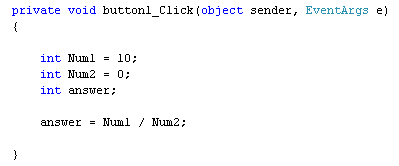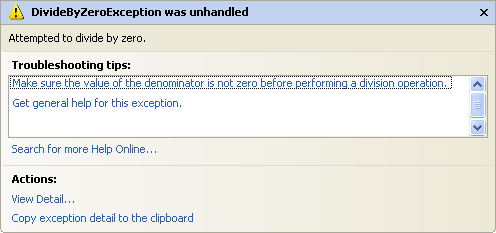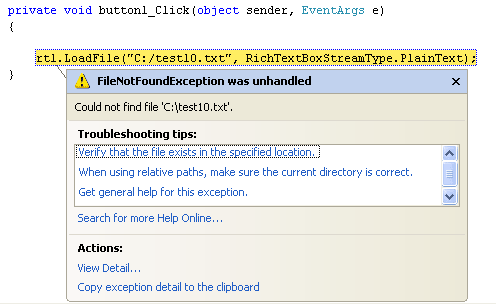Run-Time errors are ones that crash your programme. The programme itself generally starts up OK. It's when you try to do something that the error surfaces. A common Run-Time error is trying to divide by zero. In the code below, we're trying to do just that:
 The programme itself reports no problems when it is started up, and there's no coloured wavy lines. When we click the button, however, we get the following error message:
The programme itself reports no problems when it is started up, and there's no coloured wavy lines. When we click the button, however, we get the following error message:
 Had we left this in a real programme, it would just crash altogether ("bug out"). But if you see any error message like this one, it's usually a Run-Time error. Here's another one. In the code below, we're trying to open a file that doesn't exist:
Had we left this in a real programme, it would just crash altogether ("bug out"). But if you see any error message like this one, it's usually a Run-Time error. Here's another one. In the code below, we're trying to open a file that doesn't exist:
 As the message explains, it can't find the file called "C:/test10.txt". Because we didn't tell C# what to do if there was no such file, it just crashes.
As the message explains, it can't find the file called "C:/test10.txt". Because we didn't tell C# what to do if there was no such file, it just crashes.
Look out for these type of error messages. It does take a bit of experience to work out what they mean; but some, like the one above, are quite straightforward.



Look out for these type of error messages. It does take a bit of experience to work out what they mean; but some, like the one above, are quite straightforward.
No comments:
Post a Comment